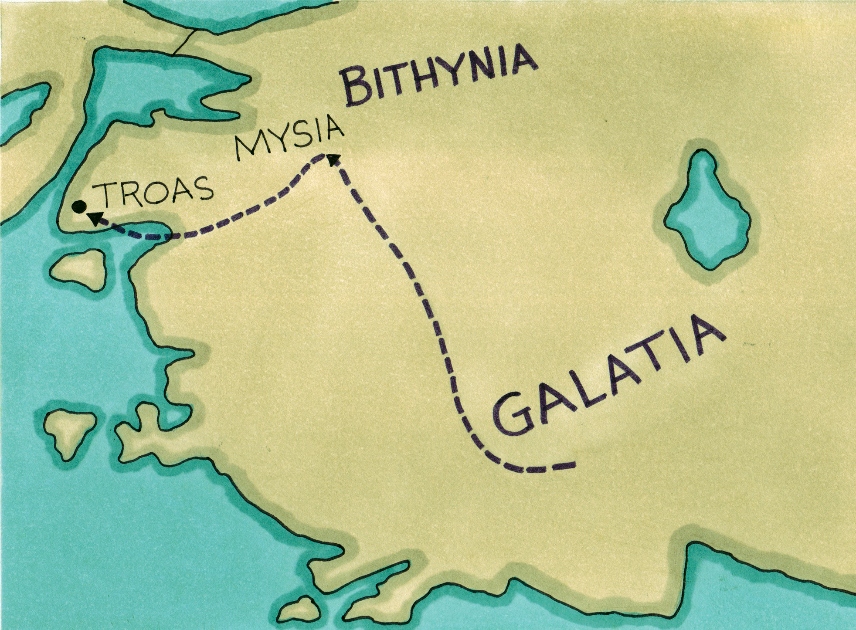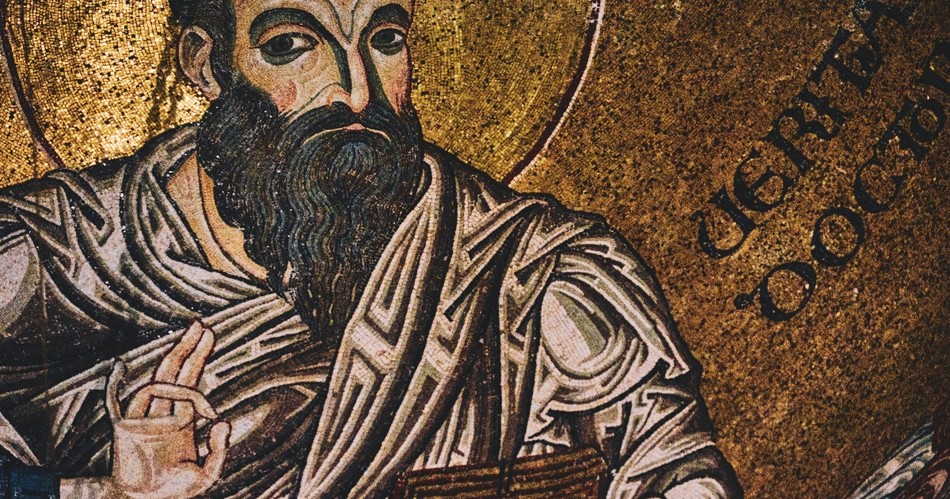“You foolish Galatians! Who has bewitched you?” These sharp words from Paul open the third chapter of his letter to the Galatians, one of the New Testament's most quoted epistles. This letter passionately addresses the Galatians' newfound freedom and unity in Christ, urging them not to return to the "yoke of slavery" (Galatians 5:1). The epistle tackles the contentious issue of the interactions between Jews and Gentiles, solidifying its place as a cornerstone of Pauline theology. Its themes of conversion and conflict have resonated through numerous reformations and continue to be pivotal today.
But who were the Galatians? The recipients of Paul's letter were part of the early Christian communities in Galatia. Understanding the historical and cultural context of Galatia enriches our comprehension of Paul's message and its enduring impact on Christian thought. The Galatians navigated a complex cultural landscape influenced by traditions from all over the world. Galatia as a melting pot of cultures reflects many of the cities we find ourselves in today. Discover how the history, cultural and religious contexts, and more provide a fascinating backdrop to Paul's efforts to unify diverse believers under the banner of faith in Christ.
Where Is Galatia? - Table of Contents
Galatia Pronunciation
The pronunciation of "Galatia" is [guh-LAY-shuh]. The name "Galatia" is a Greek term based on "Gaul," which was repeated by Latin writers as Galli, and references the Gaulish people who settled in the region. These settlers were part of the Celtic migration that moved into Asia Minor.
Where is Galatia?
Ancient Galatia was a region located in north-central Anatolia, which corresponds to modern-day central Turkey, particularly the provinces of Ankara and Eskişehir.
The modern-day region that was once Galatia is now part of Turkey, with significant cities like Ankara, which served as the ancient city of Ancyra, one of Galatia's central cities. Today, these areas retain rich historical and archaeological significance, reflecting their storied past through various ruins and artifacts. The transformation from an ancient Celtic settlement to a Roman province and now part of modern Turkey highlights the region's long-standing historical importance and its continuous evolution

GettyImages/BibleArtLibrary
Historical Background
In the early 3rd century BC, Gallic tribes, also known as the Celts, migrated from Europe and invaded Greece and parts of Asia Minor. A segment of these invaders, known as the Celtic Gauls, now Galatians, crossed over into Anatolia. By 278 BC, they settled in the central highlands of this region, which eventually became known as Galatia. Their settlement led to significant cultural and political changes in the region. The Galatians maintained their Celtic traditions and language, even as they interacted with Hellenistic and later Roman cultures
Initially, the Galatians established independent territories and engaged in frequent conflicts with neighboring regions including raiding and warfare. However, their society gradually transformed due to interactions with Greek culture and later Roman conquest. The Romans annexed Galatia in 25 BCE, turning it into a Roman province. This transition brought about significant administrative and infrastructural developments, with Galatia becoming an important cultural and economic hub due to its strategic location. The influence of Roman law, architecture, and social systems permeated Galatian life, leading to a blend of Celtic and Roman cultural elements. By the time Paul wrote his Epistle to the Galatians, the region was a melting pot of cultural influences.
Cultural Context
The Galatians' unique culture was a blend of their original Celtic traditions and the customs of the surrounding Greek and Roman societies. This cultural fusion is evident in their religious practices, art, and social structures, which combined elements from Celtic, Greek, and Roman civilizations.
The Celtic settlers retained several cultural traditions from their European origins. These traditions included polytheistic religious practices, where spirits were believed to inhabit humans, animals, plants, and natural elements like mountains and rivers. They celebrated ancient religious festivals and rituals, which gradually blended with local Hellenistic and Roman customs. Their social structure and warrior ethos also reflected traditional Celtic values.
Religious History
Before Paul’s letters, Galatia was a region with a diverse religious landscape. The Celtic Galatians retained aspects of their polytheistic and druidic traditions, similar to those in Gaul. Additionally, as part of the Hellenistic and Roman worlds, Galatia would have been influenced by Greek and Roman deities and religious practices. By the time Paul arrived, there were also Jewish communities, which played a significant role in the region's religious dynamics.
Galatia in the New Testament
Galatia holds significant relevance in the New Testament, particularly through the Apostle Paul's missionary journeys and his Epistle to the Galatians. This letter addresses the early Christian communities in Galatia, emphasizing salvation through faith in Jesus Christ rather than adherence to the Mosaic Law. Central to Paul's message is the doctrine of justification by faith rather than by works of the Law.
Paul passionately argues against the Judaizers, who insisted that Gentile converts must follow Jewish law, including circumcision, to be true Christians. Paul emphasizes that faith in Jesus Christ is sufficient for salvation and that believers are free from the bondage of the Mosaic Law. The letter calls for mutual support within the Christian community, emphasizing that true freedom in Christ leads to a life characterized by love, joy, and peace.
Paul's Epistle to the Galatians
In the opening chapters of the book of Galatians, Paul asserts his apostolic authority and recounts his personal conversion experience. He reminds the Galatians of the true gospel message that he preached to them and criticizes them for quickly deserting this message for a distorted version. He explains that righteousness cannot be achieved through the Law but through faith in Christ, which leads to spiritual freedom.
Paul further elaborates on the concept of Christian liberty in chapters 5 and 6. He explains that believers are called to live by the Spirit and not indulge in sinful desires. This freedom should be expressed through love and service to one another. Paul contrasts the works of the flesh with the fruit of the Spirit, encouraging the Galatians to exhibit qualities such as love, patience, kindness, and self-control.
The letter concludes with practical advice for living out the Christian faith. Paul urges the Galatians to support one another and carry each other's burdens. He reiterates the importance of sowing to please the Spirit rather than the flesh and assures them that they will reap eternal life if they do not give up. The Book of Galatians serves as a powerful reminder of the transformative power of grace and the freedom that comes from a life led by the Spirit
Bible Verses about Galatia
"Paul and his companions traveled throughout the region of Phrygia and Galatia, having been kept by the Holy Spirit from preaching the word in the province of Asia" Acts 16:6 (NIV).
"After spending some time in Antioch, Paul set out from there and traveled from place to place throughout the region of Galatia and Phrygia, strengthening all the disciples" Acts 18:23 (NIV).
"Now about the collection for the Lord’s people: Do what I told the Galatian churches to do" 1 Corinthians 16:1 (NIV).
What Happened to Galatia?
Galatia was eventually absorbed into the Roman Empire, becoming a Roman province in 25 BC. Over time, the distinct Galatian identity blended with the broader Roman and Byzantine cultures. The region remained significant through the early Christian church era, as evidenced by Paul's letters to the Galatians. In subsequent centuries, the area continued to evolve under various empires, including the Byzantine and Ottoman Empires, eventually becoming part of modern-day Turkey.
Photo credit: GettyImages/Wirestock
Christianity.com's editorial staff is a team of writers with a background in the Christian faith and writing experience. We work to create relevant, inspiring content for our audience and update timely articles as necessary.



.jpg)